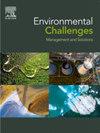安第斯国家共同体(ACN)水治理PESTEL/ swot - tow分析
Q2 Environmental Science
引用次数: 0
摘要
水资源管理和控制人为影响以及气候变化压力是支持各国发展的关键支柱。玻利维亚、厄瓜多尔、哥伦比亚和秘鲁是安第斯国家共同体(ACN)的成员国,它们拥有相似的地理和气候环境,但由于资源需求的增加和缺乏面向地表水(SW)和地下水(GW)联合利用的整体治理战略,它们在水管理方面面临挑战。本文的目的是通过应用政治-经济-社会-技术-生态-法律(PESTEL)和优势-机会-弱点-威胁(swot - tow)方法,为综合水管理提出战略指导方针,分析ACN的监管框架和优先用途。该方法包括(i)研究区域的特征,(ii)对ACN的监管框架和水资源数据进行文献回顾,(iii)与一组专家和内外部因素(swot - tow)进行外部因素(PESTEL)分析,以及(iv)编制水管理矩阵。ACN的水管理是21世纪的一项重大挑战,需要新的公共政策,通过政府和社区之间的互动产生,考虑工程知识、技术成分、祖先知识的整合,以及共同利用SW、GW和废水的整体参与式方法。本研究使用六位水管理专家的标准选择PESTEL因素,确定环境和技术因素具有最高的重要性权重(100%),其次是经济,政治和法律方面,重要性很高(75%)。通过综合swot - tow分析,制定了资源管理准则,主要面向(i)保护地表水和地下水体的条例,(ii)流域管理的多学科技术合作,以及(iii)流域系统的公共数据库。最后,考虑水-能源-食品(WEF)资源的优化和水利部作为水管理的最高级别机构。本文章由计算机程序翻译,如有差异,请以英文原文为准。
Water governance PESTEL/SWOT-TOWS analysis in the Andean Community of Nations (ACN)
Water management and the control of anthropogenic effects as well as climate change pressures are critical pillars supporting the development of countries. Bolivia, Ecuador, Colombia and Peru, countries of the Andean Community of Nations (ACN) share similar geographic and climatological environments but face challenges in water management due to the increased demand of the resource and the lack of integral governance strategies oriented to the conjunctive use of surface water (SW) and groundwater (GW). The objective of this article is to analyse the regulatory frameworks and priority uses in ACN by applying the Political-Economic-Social-Technological-Ecological-Legal (PESTEL) and Strengths-Opportunities-Weaknesses-Threats (SWOT-TOWS) methods for the proposal of strategic guidelines for integrated water management. The methodology comprises (i) characterization of the study area, (ii) a literature review of regulatory frameworks and water resources data of the ACN, (iii) an analysis of external factors (PESTEL) with a group of experts and internal-external factors (SWOT-TOWS), and (iv) preparation of a water management matrix. Water management in ACN is a significant challenge of the 21st century that requires new public policies, generated through the interaction between government and communities, that consider the integration of engineering knowledge, the technical component, ancestral knowledge, and the integral-participatory approach to the joint use of SW, GW, and wastewater. This study selected the PESTEL factors using the criteria of six experts in water management, identifying that environmental and technological factors had the highest weight of importance (100 %), followed by economic, political, and legal aspects with high importance (75 %). With the integrated SWOT-TOWS analysis, resource management guidelines were established, mainly oriented towards (i) Regulations for the protection of surface and groundwater bodies, (ii) Multidisciplinary technical cooperation for watershed management, and (iii) Public databases of watershed systems. Finally, consider the optimisation of Water-Energy-Food (WEF) resources and the Ministry of Water as the highest level institution in water management.
求助全文
通过发布文献求助,成功后即可免费获取论文全文。
去求助
来源期刊

Environmental Challenges
Environmental Science-Environmental Engineering
CiteScore
8.00
自引率
0.00%
发文量
249
审稿时长
8 weeks
 求助内容:
求助内容: 应助结果提醒方式:
应助结果提醒方式:


